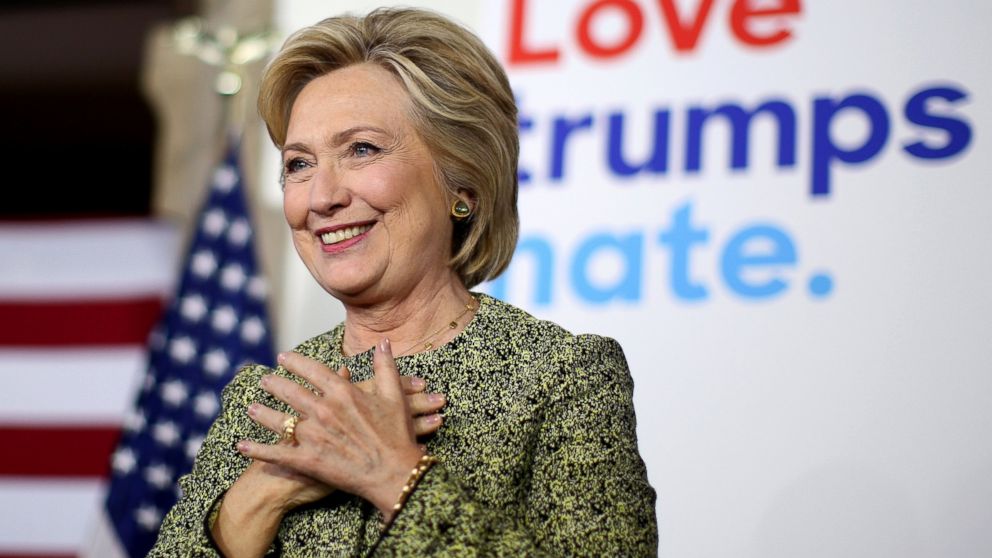Hillary Clinton Accepts That Millennial Voters Still Have 'Questions About Me'
PHILADELPHIA -- In this final stretch before Election Day, the Clinton camp is setting its sights on the youth.
The Democratic presidential nominee today held a millennial-focused campaign event at Temple University in Philadelphia, where she made her pitch to the voting bloc that has been unwilling to fully rally behind her.
"Even if you are totally opposed to Donald Trump, you may still have some questions about me. I get that," Clinton, in a moment of self-reflection, told the crowd of 300 people. "And I want to do my best to answer those questions.”
She explained that the “service” part of “public service” has always been easier for her than the “public” part. “I will never be the showman my opponent is and, you know what, that's OK with me,” she said, referring to Donald Trump.
Over the past week, the Clinton campaign has redoubled its efforts to attract millennials, whom demographers define loosely as people born in the early-1980s through the early-2000s.
Clinton surrogates President Obama, first lady Michelle Obama, Sen. Bernie Sanders of Vermont and Sen. Elizabeth Warren of Massachusetts have all been tapped to hit the trail.
The main focus: urging young people to vote.
“We need everyone off the sidelines,” Clinton said today. “Not voting is not an option. That just plays into Trump’s hands, it really does.”
Clinton, who started her remarks calling on the country to “remain vigilant” in the wake of the bombings in New York and New Jersey, also used the opportunity to contrast herself with her Republican opponent.
"You want something to vote for, not just against," she told the crowd. “Optimism, not resentment. Answers, not anger. Ideas, not insults. Bridges, not walls.
“You're also here because you know this election isn't a reality-TV show. It shouldn't be about birth certificates or name calling or stunts to get on the cable news,” she added, referencing Trump’s long-held and false belief that Obama was born outside the United States.
“This election comes down to a choice between two very different visions for America,” she concluded.
Trump has since said that he believes Obama was born in the United States.
Although Clinton is polling better with young adults than Trump (a recent ABC News/Washington Post poll found that she has 40 percent support among youth versus Trump’s 28 percent), the demographic, as a whole, has shown less enthusiasm for her candidacy than other Democrats.
According to that same poll, 60 percent of Democratic adults under the age of 30 said they had hoped Sanders would win their party’s nomination, while 26 percent said Clinton.
That number, however, is better than it was four months ago. (During the primary in spring, 75 percent of Democrats under the age of 30 supported Sanders, while only 25 percent said they supported Clinton, according to the ABC News/Washington Post poll.)
Clinton campaign officials, who hope to close that gap further, say they plan to continue these outreach efforts throughout the rest of the campaign.
"The millennial generation is a key voting bloc in this election and it's clear that the campaign must do more to earn their vote,” Clinton spokesman Jennifer Palmieri said in a statement today. “That is why the campaign has recently ramped up efforts to engage millennial voters through a stretch of events with surrogates like President Obama, first lady Michelle Obama, Senator Tim Kaine, Anne Holton, Chelsea Clinton, Senator Elizabeth Warren and Senator Bernie Sanders.
“The campaign has also brought on board staff at headquarters and in states to organize and mobilize millennial voters,” she added. “And over the coming weeks, the campaign will continue to host discussions in communities on how Hillary Clinton is fighting for them.”
ABC News’ Ryan Struyk contributed to this report.




